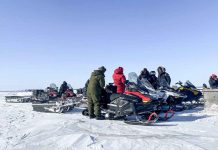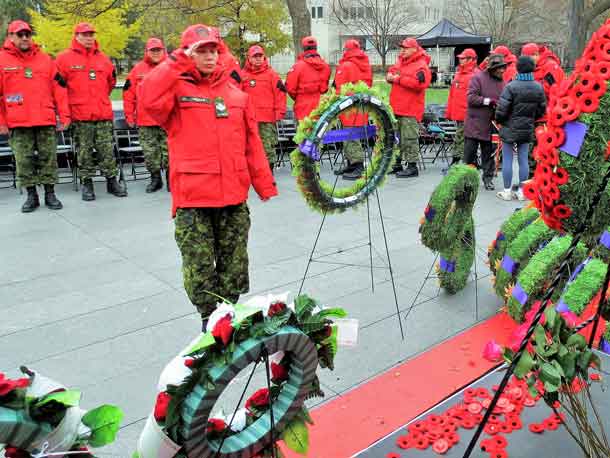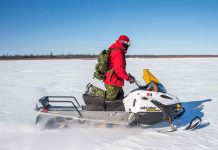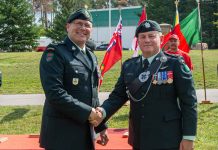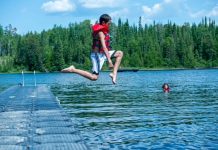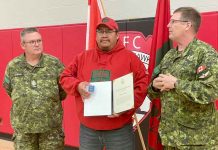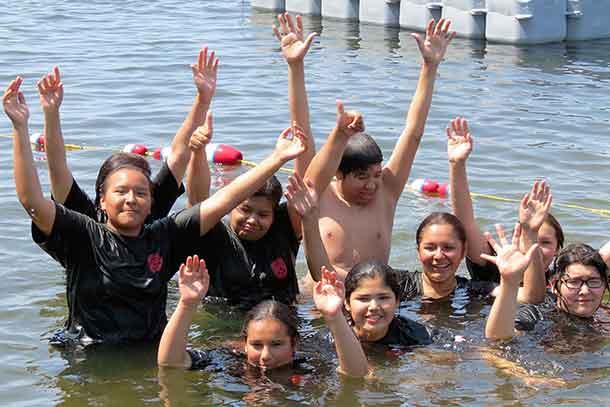
THUNDER BAY – Teaching Junior Canadian Rangers to be safe on the land, water, and in their personal lifestyles is the main focus of Camp Loon 2016, an annual camp for Junior Rangers from across the Far North of Ontario, but the top priority at this year’s camp will be safety on the water.
“Water safety will be the most important thing this year,” said Captain John McNeil, the Canadian Army officer who commands the 750 Junior Rangers in 20 First Nations in Ontario. “It’s definitely not a skill that is used often in the North and it causes a lot of grief.”
The Far North of Ontario has the highest number of deaths by drowning among indigenous peoples across Canada, partly because of the large aboriginal population but mainly because people do not learn to swim because of the cold waters in the short summers, Captain Mc Neil said.
In addition, life jackets are not used as often as they should be and people frequently fail to leave details of their plans when they go out on the water in boats.
The Junior Rangers at Camp Loon, which begins this week, will be taught Swim-to-Survive, a program that gives them the basic ability to swim a short distance, such as from a capsized boat to shore.
“They learn a lot of serious stuff about safety at Camp Loon but they will also have lots of opportunities to have a lot of fun,” Captain McNeil said.
The tent camp is held in the bush on Springwater Lake, 50 kilometres north of Geraldton, and will provide eight days of advanced training for about 130 Junior Rangers. The Junior Rangers are a national youth program run by the Canadian Armed Forces for boys and girls aged 12 to 18 in Canada’s remote and isolated regions.
The camp’s opening ceremony is on Friday, June 24, and it closes on Friday, July 1.
A highlight of this year`s camp will be visits by staff from Lakehead University and Confederation College in Thunder Bay. “They are going to discuss with the Junior Rangers their aboriginal programs so those kids that are looking for post-secondary education can learn about them,” Captain McNeil said. “It’s an important opportunity for kids who live in remote areas to get that information.”
Camp Loon provides a range of training activities that are not normally available to Junior Rangers in their home communities. They include specialized instruction in shooting, boating, driving all-terrain vehicles, mountain biking, archery, lacrosse, and traditional arts and crafts. There is also paintball, which teaches team work, and a confidence-building zip line that launches from a 10-metre tower and takes Junior Rangers for 130 metres over a river.
Much of the supervision and training at the camp is done by Canadian Rangers, who are part-time army reservists, supported by additional military personnel from the headquarters of the 3rd Canadian Ranger Patrol Group at Canadian Forces Base Borden, near Barrie, and other military units. Food at the camp is provided by a military field kitchen, whose cooks go out of their way to provide the Junior Rangers with food treats that are often not available in their home communities.
(Sergeant Peter Moon is the public affairs ranger for the 3rd Canadian Ranger Patrol Group at CFB Borden.)


